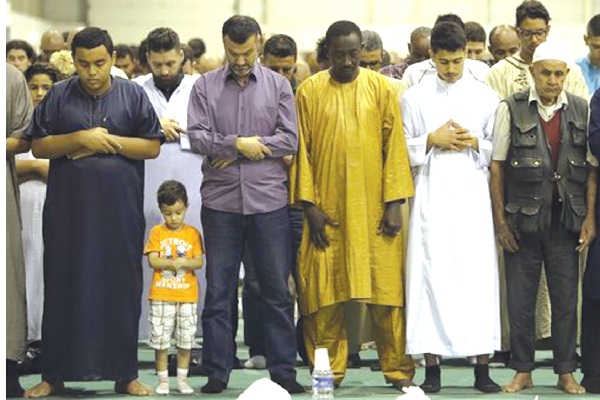While procreation is expected in marriage to maintain the human race, sexual relationships within marriage needs not to be for having children alone, but should also be for the maintenance of peace in the marriage.
On this point, Islam departs from other religions, where procreation is the exclusive purpose of sexual relations.
Procreation is expected in marriage to maintain the human race. Therefore, sexual relationships among couples should not mean having only children, but also for maintaining peace in marriages and by extension in communities.
Perspective
From the Islamic perspective in my opinion, procreation or family planning supports tranquillity in families rather than disrupts it.
Practising family planning helps both the couple and children to maintain good health.
The family’s financial situation improves, because children are properly spaced and their well-being prioritised. It, therefore, helps families achieve peace and tranquillity by creating the enabling environment in caring for children emotionally, intellectually and financially.
Recommendation
The Quran’s recommendation against pregnancy during lactation for at least two years can be viewed as an endorsement of family planning and birth spacing.
The reason is that avoiding intercourse for the two years minimum could bring dissatisfaction to couples and disturb the peace of their marriage, thus rather adopting family planning usage.
In my opinion, Islam supports family planning since spacing pregnancies and limiting their numbers enable the mother to be physically fit and healthy and the father to be financially sound and exercise his leadership as mandated.
Advantages
Family planning is documented to have many advantages, such as reducing the risk of repeated pregnancies, short birth intervals, teen pregnancies, pregnancies among already sick women, as well as curbing the transmission of diseases from parents to children in certain cases.
Apart from the improved health of women and children, Islam supports family planning because of additional social, political and economic advantages.
The use of family planning avoids the economic hardships of caring for a larger family, which might compel parents to resort to illegal activities including corruption, or overly stressing themselves to earn a living that Allah disapproves of as evidenced below:
Allah desires for your ease. He desires no hardship for you (Sura 2; 185)
And has not laid upon you in religion any hardship (Sura 22;78)
Additionally, family planning allows for adequate, relevant and holistic educational upbringing and religious training of children, which is more feasible with fewer children.
Furthermore, family planning makes it extremely difficult to convert children from Islam because of deprivation; and also avoids the danger of making it easy for children to be converted from Islam into terrorist groups.
Family planning enables parents to have separate sleeping arrangements for boys and girls after puberty, which is achievable with fewer children.
Although some scholars question the economic justification for family planning on the grounds that it contradicts the Islamic beliefs of reliance on and provision by God, there are economic, health, development, and security justification of the use of family planning in a number of Muslim majority countries, such as, Iran, Indonesia, Bangladesh, Turkey and Tunisia, among many other countries.
In Iran, for example, contraceptive update among married women is highest among Muslim communities comparable to countries in Europe.
Family planning is successful in Iran because it is on the government’s priority list, involving the vigorous involvement of men in good reproductive health decision making over two decades.
Additionally, seeking information on family planning in Iran is not the monopoly of the Ministry of Health; the local clergies are sources of such information too.
Undeniably, religion does not operate in isolation from other forces; fertility rates appear to be driven by a complex mixture of cultural, socioeconomic conditions, policies and other factors as demonstrated in many Muslim countries where a smaller, higher quality family is gradually becoming the norm.
Study
Backing the above, a study by United Nations Population Division and Carl Haub in 2008 assessed the trend in total fertility rates in 46 Muslim majority countries.
It showed that between 1960 and 1965, 25 of the countries had a total fertility rate of seven or more and none had a total fertility rate of less than three.
However, in 2008, only one out of the 46 countries had a total fertility rate of seven and above.
Twenty-one countries had a total fertility rate of two, while six countries had total fertility rate of three.
Limiting their fertility and increasing birth spacing through family planning enable parents and nations to invest time, energy, and money in quality education and the realisation of each individual child’s potential for their relevant desire, fulfilment and national development.
In many Muslim countries, marriage is no longer just about having children. Many Muslim men want fewer children in order to provide adequate financial support, paternal love and good education to both sons and daughters to bridge inequality gaps and create peace.
Family planning is fundamental to peace and sustainable development.
The writer is the Executive Director, National Population Council

